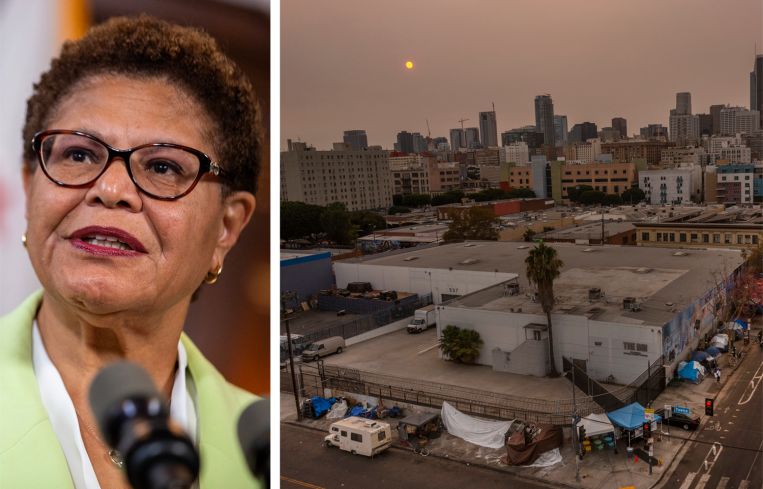L.A. Court Approves Sale of 17 Affordable Skid Row Properties to Leo Pustilnikov
The judge also approved the $2 million sale of a separate property in Skid Row to an affiliate of Dalian Development
By Nick Trombola August 8, 2024 5:10 pm
reprints
The sale of a 17-property affordable housing portfolio in Downtown Los Angeles’ Skid Row neighborhood got its stamp of court approval this week, and the buyer is a familiar name to anyone paying attention to the Southern California commercial real estate industry lately.
Beverly Hills-based developer Leo Pustilnikov will pay $19 million for the buildings, which total 1,200 units used by formerly homeless tenants, with the judge in the case saying that the sale was in the best interest of the tenants and taxpayers who had footed the bill for the properties since spring of last year, according to the L.A. Times.
Pustilnikov will receive $9 million of that total back to fund renovations and other costs, with the ability to draw a further $1.3 million for litigation costs against the properties.
The court also simultaneously approved the $2.1 million sale of another building in Skid Row, dubbed the New Genesis, to an affiliate of Washington, D.C.-based firm Dalian Development. That’s in addition to 11 others in the neighborhood sold to various nonprofit developers recently, per the Times.
All 29 buildings were formerly controlled by the Skid Row Housing Trust (SRHT), a nonprofit founded in 1989 to renovate rundown hotels and apartment complexes into low-cost and long-term housing for the city’s formerly homeless population. Yet, after years of leadership and financial problems, and despite federal rental subsidies, SHRT announced early last year that it could no longer afford to maintain the 2,000-unit portfolio.
Indeed, many of its residents were living in squalid conditions as a result, such as apartments with broken utilities, foul smells and vermin infestations, per the Times.
A few weeks later, the portfolio was placed under a court-ordered receivership to manage the properties and search for new owners, at the behest of L.A. Mayor Karen Bass and other city officials, with fears growing that the city could lose such a large pool of last-resort housing.
“The purchaser appears to me to be a responsible and qualified operator,” Kevin Singer, president of Receivership Specialists, said in a court filing earlier this week. “The at-risk population that lives at the sale properties needs a permanent owner/operator, and without such an owner/operator the alternatives for these tenants could be catastrophic.”
The cost to taxpayers has been significant since that receivership order last spring, as the city’s bill for it has run up to at least $37 million, per the Times. Though the money generated by the properties’ sales to Pustilnikov and others is expected to pay at least some of that tab back.
“I would like to thank the city, county and state for their efforts in protecting this vulnerable population and I look forward to continuing to work with the mayor, City Council and County Board of Supervisors in turning around these challenging and neglected properties,” Pustilnikov told the Times in a statement after the judge approved the purchase. The developer has also committed to maintaining social services for the building’s tenants, as a condition from the city.
Pustilnikov began garnering headlines last year for his innovative, if controversial, use of California’s Builder’s Remedy rule, a formerly little-known state ordinance that allows developers to bypass local zoning restrictions if a given city is out of compliance with state housing requirements. A number of Pustilnikov’s attempts to use the rule, however, have been mired in legal and procedural challenges, particularly in notably wealthy communities like Beverly Hills, where his plan to build a 19-story apartment tower was effectively denied by the City Council in late June.
Nick Trombola can be reached at ntrombola@commercialobserver.com.



